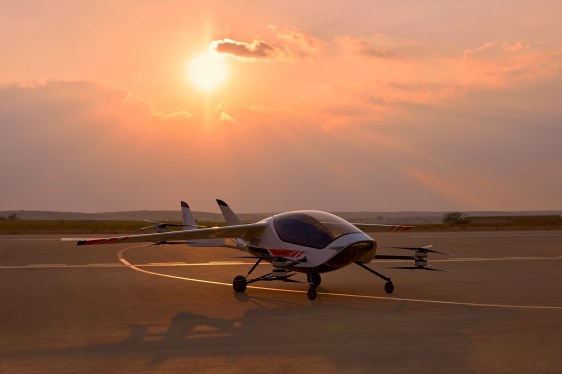The growing geopolitical tensions and rising defense budgets are pushing many electric vertical takeoff and landing (eVTOL) manufacturers to adopt a dual strategy: developing crewed aircraft for personal or commercial taxi use and uncrewed models for logistics and defense applications.
AIR, an Israel-based eVTOL startup, chose this approach from the beginning, designing both its piloted and uncrewed aircraft with the same airframe and core systems. This allows the company to develop for both markets simultaneously.
Currently, AIR offers the AIR ONE, a piloted eVTOL for personal use, and an uncrewed version for cargo transport, contested logistics, and defense missions. Since its first cargo delivery in late 2023, the company has secured over 2,500 pre-orders for the AIR ONE and plans to deliver 15 cargo eVTOLs this year.
To accelerate growth, AIR recently raised $23 million in a Series A funding round led by Entree Capital, with participation from existing investor Dr. Shmuel Harlap, an early backer of Mobileye. The funds will support scaling production in Israel, hiring more staff, and expanding into the U.S., according to CEO and co-founder Rani Plaut.
This funding follows a U.S. Executive Order promoting domestic drone and eVTOL development, along with updates to the FAA’s MOSAIC rule, which expands certification pathways.
AIR’s cargo aircraft currently operate under Experimental Airworthiness Certificates (EAC) for logistics and dual-use missions. EACs are issued for development, testing, or research purposes, allowing flight under strict conditions. Once certification is complete, the uncrewed eVTOL will transition to a full Type Certificate, which ensures compliance with safety and regulatory standards for commercial operation.
Meanwhile, the two-seater AIR ONE is expected to qualify for Light Sport Aircraft (LSA) certification under the new MOSAIC rules. LSA-certified aircraft are restricted to flying outside densely populated areas and controlled airspace.
Plaut noted that AIR designed the AIR ONE to meet LSA criteria from the start, anticipating a smoother certification process. The company aims to be the first piloted eVTOL certified under LSA and plans to begin deliveries in 2026 when the rule takes effect.
The U.S. presents a strong market for eVTOL companies, with opportunities for government and enterprise contracts, especially amid increasing defense priorities. However, AIR faces stiff competition from established players like Joby Aviation and Archer Aviation, which already have airline partnerships and military contracts. Additionally, AIR does not yet manufacture its eVTOLs in the U.S., a key factor for securing government deals.
Despite these challenges, AIR believes its shared design architecture and cost efficiency give it an advantage. The company’s unified platform allows upgrades to be applied across both models, simplifying development and scaling.
Plaut highlighted the practicality of AIR’s aircraft, noting their compact size and folding-wing mechanism, which eliminates the need for airports or specialized infrastructure. The uncrewed model also features simplified operating procedures, enabling minimally trained crews to manage it.
To further reduce costs, AIR is applying automotive-grade manufacturing principles for scalable production. The company plans to establish a U.S.-based manufacturing hub to support high-volume production and strengthen its market position.

